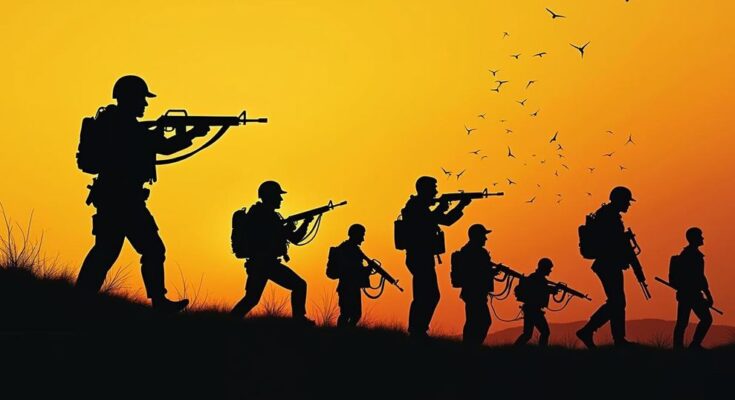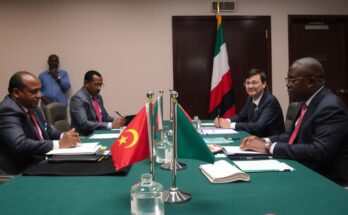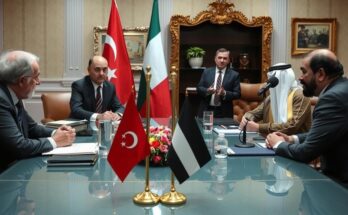Hezbollah, founded in 1982 amidst Lebanon’s civil war, has transformed into a powerful militant and political organization backed by Iran. With approximately 150,000 rockets in its arsenal, it has engaged in ongoing conflicts with Israel, leading to escalated hostilities that risk broader regional warfare. Hezbollah’s dual role as a political party and provider of social services complicates its public image within Lebanon, balancing local support against criticism of its dependency on Iranian policies and military tactics.
The Lebanese militant group Hezbollah, established in 1982 during Lebanon’s civil war, has evolved into a powerful paramilitary and political entity with significant influence in Lebanon and substantial backing from Iran. Its initial aim was to end Israel’s occupation of southern Lebanon, which it achieved in 2000. However, Hezbollah has since expanded its objectives, which now include the destruction of Israel. Under the leadership of Hassan Nasrallah, Hezbollah has showcased advanced military capabilities, including a formidable arsenal estimated at 150,000 rockets and missiles, with new weapons continually being integrated since the onset of the current conflict with Israel. The recent escalation of hostilities, fueled by mutual provocations, has intensified concerns about the potential for a broader war in the region. Hezbollah is characterized not only as a militant organization but also as a political party, holding a significant number of seats in the Lebanese parliament and actively participating in governmental coalitions. It also provides social services, including educational and healthcare support, further solidifying its foothold in Lebanese society. Nevertheless, Hezbollah faces domestic criticism for its military engagements and its perceived alignment with Iranian interests, which some Lebanese citizens believe compromises the sovereignty of their nation. The organization’s past actions, including attacks against U.S. assets and its role in the 2006 war with Israel, contribute to its contentious reputation.
Hezbollah emerged in the midst of Lebanon’s civil war as a collective of Shiite groups aimed at resisting Israeli occupation. Its ideological underpinnings are linked to Iran’s influence in the region and the broader Axis of Resistance, which includes various factions loyal to Tehran’s political vision. Over the years, Hezbollah has adapted to changing warfare dynamics, becoming involved in regional conflicts, most notably the Syrian civil war. Its arsenal has been continually developed through Iranian support, positioning Hezbollah as a key player not only in Lebanese politics but also in the military landscape of the Middle East. This status has led to a complex interplay of local discontent and external strategic challenges, particularly regarding its engagements with Israel.
In summary, Hezbollah stands as a formidable entity within Lebanon and the broader Middle East, uniquely blending its roles as a militant group and a political power. As tensions with Israel escalate, numerous factors, including its vast military capabilities, Iranian support, and social services provided to the Lebanese population, contribute to Hezbollah’s influential status. However, its actions continue to draw criticism and opposition from various domestic factions who argue that its alignment with Iran undermines Lebanon’s independence.
Original Source: www.pbs.org




